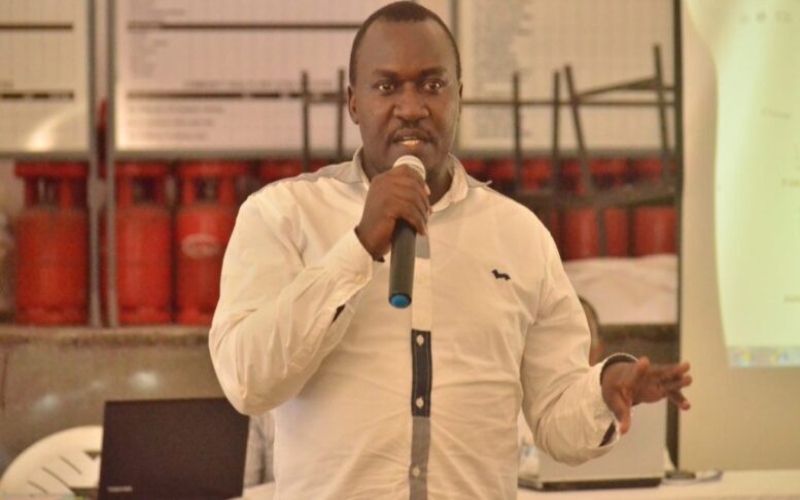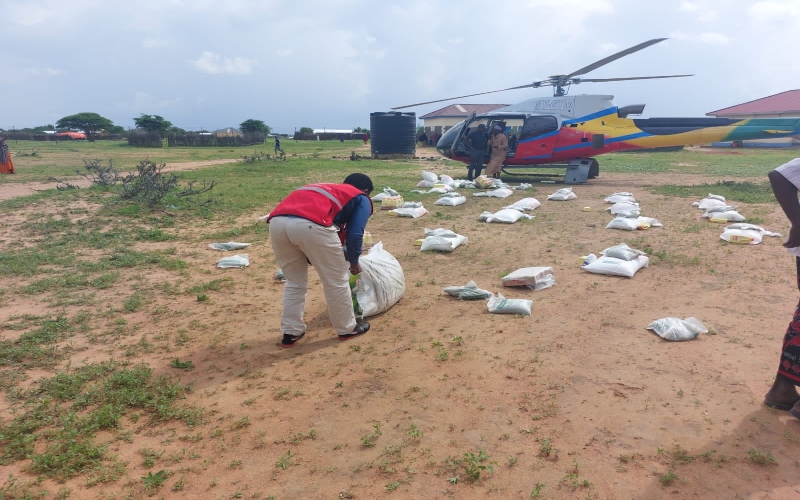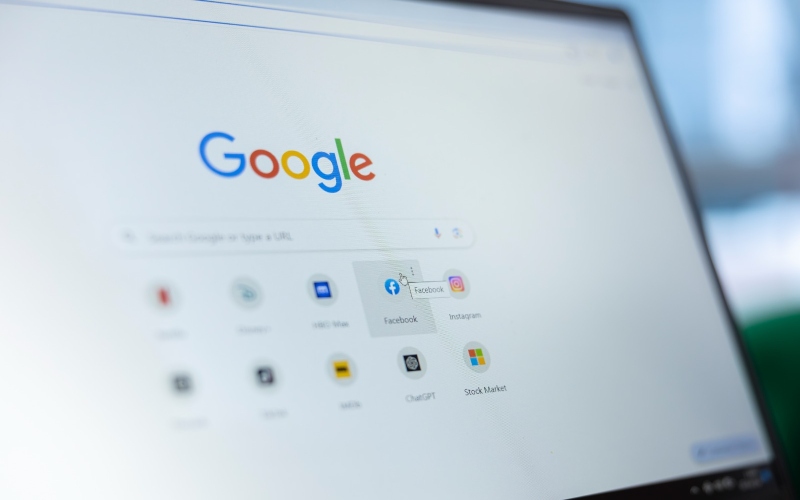Second polio vaccine rollout faces resistance from parents over safety concerns
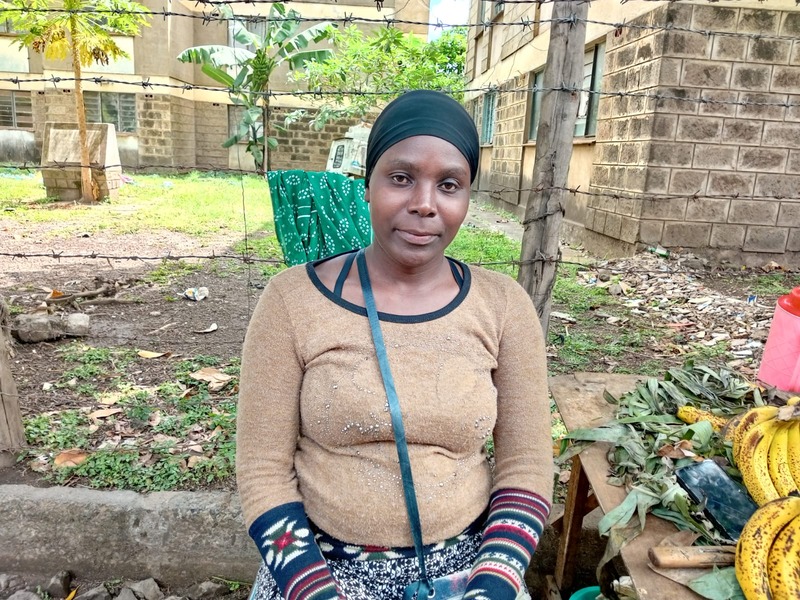
However, despite the widespread uncertainty, some parents who are well-informed about the importance of vaccination have chosen to move forward with vaccinating their children.
The second phase of the polio vaccine rollout began on Saturday, with community health promoters going door-to-door in neighbourhoods to vaccinate as many children as possible.
However, following reports of severe reactions and two tragic deaths during the previous phase, there is growing concern among parents. Many are hesitant to have their children vaccinated, with some even resorting to hiding their children or lying they've already been vaccinated.
More To Read
- Health Ministry clarifies Kenya–US health partnership respects sovereignty, data protection
- Third Kilifi health forum opens with urgent calls for financing, digital solutions
- England confirms new mpox strain: What you need to know
- Kenya urges stronger regional cooperation as transport corridors fuel disease risks across East Africa
- How Trump–Ruto health deal fills the void left after USAID exit
- Kenya, US sign Sh208 billion health cooperation deal to transform to strengthen primary care, services
Elizabeth, a community health promoter from Nairobi, and her team faced hostility from some parents who were suspicious of the vaccine. "It has been very challenging today to convince parents that the vaccine is safe and necessary. There's a lot of doubt among parents. We try our best to reassure them, but it's not always easy."
She adds that some parents go to great lengths to avoid the vaccination process. "In some cases, we walk into a building where children are playing, but parents refuse to have their children vaccinated."
Mercy, another community health promoter, says that in Kamukunji, many mothers wait for their husband's consent before vaccinating their children. "This delays the process."
Language barrier is also a significant issue, making it hard to communicate the benefits of vaccination even when there are community members from the same ethnic groups available to assist.
Mercy further notes that the high level of skepticism in Kamukunji is compounded by the diversity of nationalities in the area. Many residents are unfamiliar with the vaccine, and some view it with suspicion, believing it to be a government scheme.
"The foreign concept of vaccination is causing many to be hesitant since some have never had their children vaccinated in their countries," she says.
In light of these challenges, Mercy calls on local leaders to help mobilise communities, urging them to educate parents about the importance of vaccinating their children to protect them from the risks of polio.
Despite the setbacks, Elizabeth and Mercy stress that the vaccine is safe and should not be avoided due to the isolated cases reported during the first phase.
Lack of awareness
A recent spot check by The Eastleigh Voice shows a lack of awareness about the reported adverse reactions and the causes of the two deaths during the previous polio vaccine rollout which is slowing progress in the current phase. Many parents remain skeptical due to the confusion and misinformation surrounding the cases, which has led to hesitancy in vaccinating their children.
However, despite the widespread uncertainty, some parents who are well-informed about the importance of vaccination have chosen to move forward with vaccinating their children.
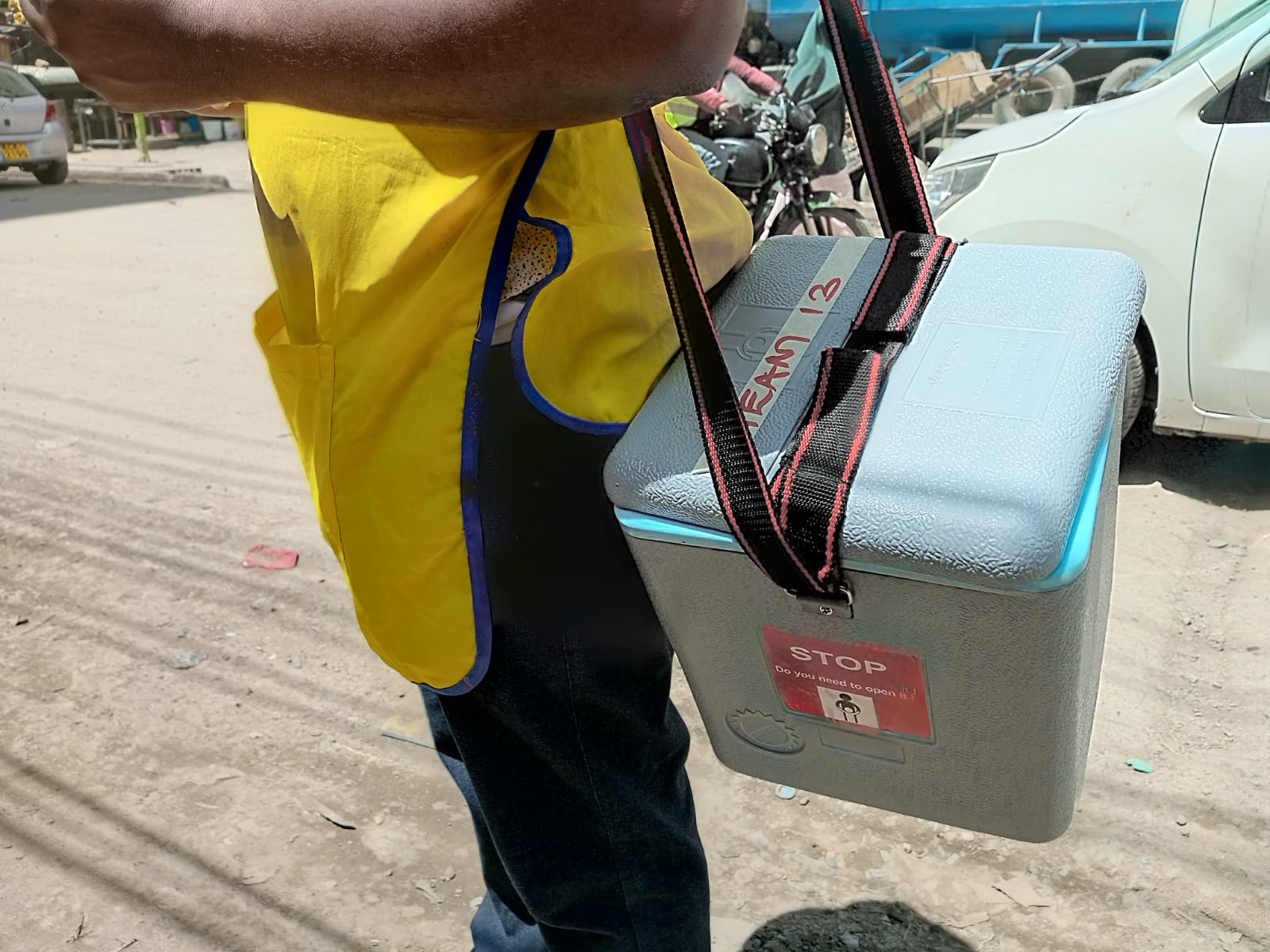 Community health promoters administering polio vaccine in Kamkunji. (Charity Kilei)
Community health promoters administering polio vaccine in Kamkunji. (Charity Kilei)
Sarah Wanjiru, a resident of Highrise, has seen the devastating impact of polio up close. She witnessed a neighbour's child become paralysed due to the disease, and that experience left a lasting impression on her. It has made her a strong advocate for vaccination.
"Recently, I had my child vaccinated, and I didn't notice any side effects. It was a simple process, and I believe it's something every parent should do. I will continue to ensure all my children are vaccinated because I understand how crucial it is. Polio is a disease that can completely change a child's life, and I wouldn't want my child to grow up with a disability that could have been prevented with a vaccine," she said
Sarah believes that vaccination of children is an essential part of good parenting, and she strongly encourages other mothers to do the same.
"I know there are concerns or fears around vaccinations. I heard about the reported cases, just like everyone else, but I truly believe that vaccinating is in the best interest of the child. The risk of not vaccinating is far greater. We all want our children to grow up healthy and strong, and preventing something like polio is one of the most important steps we can take as parents," Sarah said.
She also points out that, while there may be rumours or misinformation circulating, it's essential to make informed decisions based on the well-being of the child.
"I trust that the vaccine is safe and effective, and I will continue to allow my children to receive their vaccinations because I know it's one of the best ways to protect them from diseases like polio."
The Ministry of Health has reassured the public that recent reports of side effects following the October 2024 polio vaccination campaign are coincidental and not caused by the vaccine. This follows concerns raised after the deaths of two children, which led some parents to question the vaccine's safety.
Dr Patrick Amoth, the Director General of Health, emphasised that polio is a serious, vaccine-preventable disease, and both the oral polio vaccine (OPV) and the inactivated polio vaccine (IPV) are safe and effective.
The Ministry assured the public that while minor side effects, such as fever and rashes, can occur, they are typically short-lived, and the benefits of vaccination far outweigh any potential risks.
The Kenya National Vaccine Safety Advisory Committee (KNVSAC) reviewed 23 reported adverse events, including the two fatalities. Of the total reports, 16 cases were classified as non-serious, including mild reactions like rashes, fever, and gastrointestinal issues.
Seven cases were deemed serious, including the two deaths. Investigations revealed that the fatalities and most serious cases were linked to underlying health conditions, and only four cases were confirmed as mild vaccine-related reactions. One case remains inconclusive due to insufficient data.
Despite these incidents, the Ministry emphasised that over 3.6 million children were vaccinated successfully and are healthy, reinforcing that the vaccine remains generally safe.
The Ministry continues to urge all parents to ensure their children receive the full immunisation schedule, including the ongoing second round of the polio vaccination campaign from November 9-13, 2024.
Parents are encouraged to report any concerns to local health facilities or via the helpline *271#.
Top Stories Today










